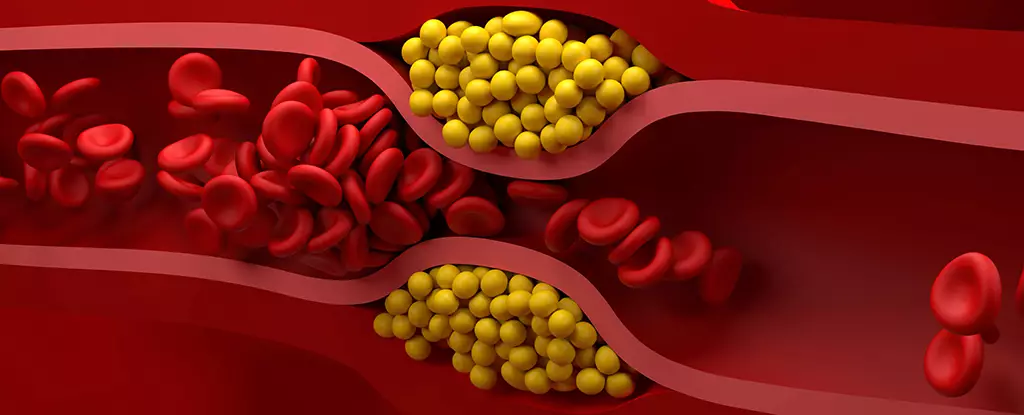The prevalence of high cholesterol is on the rise, affecting an alarming 2 in 5 adults in the United States alone. Addressing this health issue is paramount due to the detrimental impact of elevated levels of “bad” cholesterol on heart health. However, a glimmer of hope emerges with the development of a cutting-edge vaccine that shows potential to effectively and affordably combat this widespread problem.
Researchers at the University of New Mexico and the University of California, Davis are spearheading a groundbreaking study aimed at reducing levels of low-density lipoproteins (LDLs), commonly known as “bad” cholesterol. The team targeted a specific protein called proprotein convertase subtilisin/kexin type 9 (PCSK9), which plays a significant role in the production of LDLs. By using a harmless virus particle as a vaccine, they were able to trigger the immune system to neutralize PCSK9, thereby reducing LDL levels in tests conducted on mice and monkeys.
The vaccine developed by the researchers revolved around utilizing the shell of a virus particle, devoid of any infectious properties. This innovative approach harnessed the ability of these particles to generate an immune response against various diseases and conditions. By attaching fragments of PCSK9 to the virus particle, the immune system was triggered to target and neutralize the protein, preventing its harmful effects on the liver cell receptors responsible for regulating LDL levels. This promising vaccine demonstrated a reduction in bad cholesterol by up to 30%.
In addition to its efficacy, the vaccine offers the potential for affordability, unlike current PCSK9 inhibitors. The researchers aim to develop a solution that is not only accessible to individuals in the United States but also to populations in less-resourced areas. The goal is to provide a viable alternative to expensive therapies that burden healthcare systems worldwide. This vaccine could potentially be a game-changer, saving millions of lives lost to cardiovascular disease each year.
The Path Ahead
While these findings are certainly promising, the development of a vaccine for human use is still years away. Extensive clinical trials and further research are necessary to ensure the vaccine’s safety and efficacy in humans. This process requires substantial funding and collaboration across the scientific community to expedite progress. Nevertheless, the potential benefits of a vaccine that lowers cholesterol and reduces the global burden of cardiovascular disease cannot be overstated.
Lead researcher Bryce Chackerian envisions a future where this vaccine becomes a reality within the next decade. If successful, it has the potential to transform the approach to managing high cholesterol, benefiting individuals worldwide. Not only could it save lives, but it could also alleviate the financial strain on healthcare systems caused by expensive cholesterol-lowering therapies.
The development of a cholesterol-lowering vaccine holds immense promise in combatting the rising prevalence of high cholesterol and its associated health risks. By targeting the PCSK9 protein, researchers have demonstrated the ability to reduce LDL levels significantly. Moreover, the affordability and accessibility of this vaccine provide hope for a global solution to cardiovascular disease. Although challenges lie ahead, the potential benefits of this innovative approach make the pursuit of a cholesterol-lowering vaccine worthwhile, paving the way for improved heart health and ultimately saving countless lives.


Leave a Reply